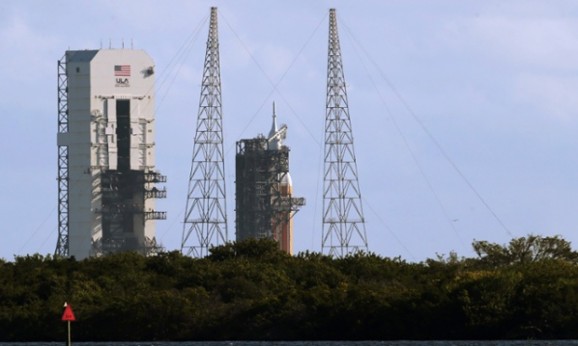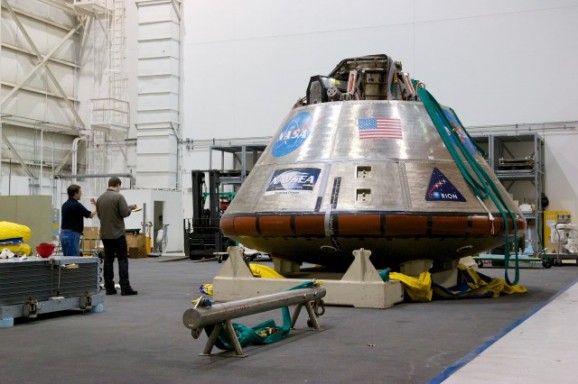NASA Scrubs Orion Test Flight, Will Try Again Tomorrow
 I got up bright and early this morning to watch the first test flight of the Orion spacecraft, which was scheduled for 7:05am. At 7:45 I was still watching the feed, pacing anxiously around, wondering how much longer I could wait before being late for work. First, a boat got too close to the launch area at Cape Canaveral in Florida, and then the winds kicked up, blowing in at about 24 mph, which is a bit too much for a safe launch. The launch was held, then rescheduled, then held again, and then rescheduled. They started the final four-minute countdown at around 7:43, but an automatic scrap due to wind stopped it again at just over three minutes. Man, this anticipation is rough.
I got up bright and early this morning to watch the first test flight of the Orion spacecraft, which was scheduled for 7:05am. At 7:45 I was still watching the feed, pacing anxiously around, wondering how much longer I could wait before being late for work. First, a boat got too close to the launch area at Cape Canaveral in Florida, and then the winds kicked up, blowing in at about 24 mph, which is a bit too much for a safe launch. The launch was held, then rescheduled, then held again, and then rescheduled. They started the final four-minute countdown at around 7:43, but an automatic scrap due to wind stopped it again at just over three minutes. Man, this anticipation is rough.
Meteorologists expected the winds to die down, but the wait really plays up that tension between the desperate desire for this launch to go off without a hitch and the goal for everything to be as safe as possible, especially given the recent rocket and spacecraft disasters.
The #Orion launch is scrubbed for today. Next launch opportunity in 24 hours.
— Orion Spacecraft (@NASA_Orion) December 4, 2014
Even though the flight window was about two-and-a-half-hours long, NASA had to scrub the launch—after all the problems with the weather, there was an issue with the spacecraft. I guess it’s better that whatever went wrong did so while Orion was still on the ground. They’ll try again tomorrow morning at 7:05 am.
Reports indicate that there was a malfunction with the Delta IV Heavy rocket’s first stage, namely, a drain valve that didn’t close correctly. Operators attempted to remotely fix the problem, but weren’t able to do so before the flight window closed. The Delta IV Heavy is the biggest rocket the U.S. has—even bigger than the Saturn V. Built by the United Launch Alliance (a collaboration between Boeing and Lockheed Martin), so much rocket power is necessary to get the Orion capsule in orbit.

There’s a lot on the line when it comes to this test flight. Orion is the only active NASA shuttle left since they shut down of the Constellation Program. The hopes are that the craft will take humans beyond low-Earth orbit and the moon, with the ultimate goal of carrying humans to Mars. It’s no coincidence that just yesterday NASA officially announced plans to get humans to the Red Planet by the mid-2030s. This plan takes on new significance and realism with the successful launch of Orion, which has been described as “Apollo on steroids.”












